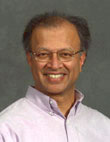| |
|
Today
8 a.m.
Human Resources
New Employee Orientation Bldg. 50 Auditorium
9:10 a.m.
EHS 10
Introduction to ES&H at LBNL
Bldg. 50 Auditorium
Noon
Employee Activities Assoc.
Yoga Class with Maya Smith
Bldg. 70A-3377
Noon
EETD
Energy Conversion Materials Through Chemical Synthesis Route
Lionel Vayssieres
Bldg. 90-3148
1:15 p.m.
EHS 735/738/739
Biosafety/Bloodborne Pathogen
Bldg. 51-201
4 p.m.
Life Sciences
Imaging the Cell Motions and Signals that Pattern Embryonic Development
Scott Fraser, CIT
Bldg. 66 Auditorium
Tomorrow
9:30 a.m.
EHS 604
Hazardous Waste
Bldg. 51-201
11 a.m.
EHS 622
Radioactive/Mixed Waste
Bldg. 51-201
Noon
Employee Activities Assoc. Yoga Class with Chris Hoskins
Bldg. 70A-3377
3 p.m.
ALS/CXRO
Glycomics: A Focus of the Postgenomic Era
Carolyn Bertozzi, UC Berkeley
Bldg. 6-2202
|
|
| |
 |
| |
Morning Additions: Ham Steak, 2 Eggs, 2 Pancakes, & Hash Browns
Market Carvery: Beef and Broccoli Rice Bowl with Eggroll
Fresh Grille: Grilled Chicken Salad Melt with Garlic Fries
Menutainment: Fiesta Taco Salad with Ground Turkey
Full Meal Deal: Texas BBQ Burger, Fries, Side Salad, Coke & Pie
|
|
B'fast: |
6:30
a.m. - 9:30 a.m. |
| Lunch: |
11
a.m. - 1:30 p.m. |
Full
menu
|
|
|
|
 |
|
|
 |

Expanding Reach
Of Patent Prizes
|
|
|
|
 |
 |
|
|
| Gadgil |
|
|
|
The Lemelson-M.I.T. program recently awarded two of its biggest prizes to Nick Holonyak, for inventing the first practical red light-emitting diode, and Edith Flanigen for her pioneering work with zeolite Y. Now 10, the Lemelson Foundation is poised to take a new direction with its philanthropy. By 2006, it aims to devote half of its annual budget on financing "sustainable invention" in the developing world. Says foundation advisor and Berkeley Lab scientist Ashok Gadgil : "We are talking about the bottom one-third of humanity on the planet, which earn less than $2 a day," he said. "A video cellphone is not going to help them." Full story.

Hacker
Attacks Ape
Hannover's Tactics
To
security world veterans, the recent attacks on Unix
and Linux machines at supercomputing centers and research
universities around the country likely sound eerily
familiar. They are nearly identical to the methods and
tactics used by the "Hannover Hackers," who
broke into Unix machines at the Berkeley Lab and several
other universities and military facilities in 1986.
Former Lab volunteer Cliff Stoll tracked
the intruders for months, eventually bringing in the
FBI and CIA, and chronicled his adventures in a book,
The Cuckoo's Egg: Tracking a Spy Through the Maze
of Computer Espionage. Full
story.
Student
'Review' Has
Several Lab Stories
The spring issue of the Berkeley Science Review -- a
quarterly magazine produced by graduate students at
UC Berkeley and Berkeley Lab -- has just been published.
It includes a feature on materials scientist John
Clarke, physical bioscientist Adam
Arkin, and the Lab's upcoming contract competition.
Copies are available in the cafeteria lobby.

|
 |
|

|
|
|
 |

Tri-Lab
Recruiting Visit
At UC Santa Barbara
Berkeley Lab will join its fellow University of California-managed labs (Livermore and Los Alamos) in a joint recruitment event at UC Santa Barbara on Thursday. This is the second such outreach effort to recruit post-docs, graduate assistants and interns for laboratory employment. According to Lab recruitment manager Ed Sayson, "We had such a successful turnout at the very first tri-lab event at UC Berkeley last October, that we thought we'd do it again." The 4-to-6:30 p.m. program includes a talk by Los Alamos astrophysicist Galen Gisler on "The Meteor Impact that Killed the Dinosaurs."

Discounts
On Audio/
Visual Equipment
The Employee Activities Association would like to remind staff that they are eligible to receive savings up to 15 percent on audio, video and home entertainment equipment at Cambridge SoundWorks. Go here to make purchases online, or call 1-800-FOR-HIFI. Be sure to reference "SelectCircle" and "Berkeley Lab." Potential buyers can also visit any Cambridge SoundWorks stores in the Bay Area. For more information, call Arabella Schmidt at x2902.

|
 |
|
|
 |

Lower
Speed Limit
For Magnetic Switching
The
speed of magnetic recording - a crucial factor in a
computer's power and multimedia capabilities - depends
on how fast one can switch a magnet's poles. An experiment
at the Stanford Synchrotron Radiation Laboratory (SSRL)
found that the ultimate speed of magnetic switching
is at least 1,000 times slower than previously expected.
The result, which appears in the April 22 issue of the
journal Nature, has implications for future hard
disk computer drive technologies. Full
story.

|  |
|
|
|
| |
|

